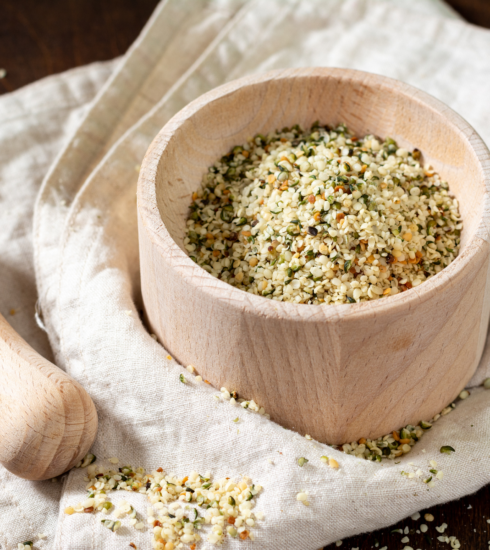What’s in Season: Ginger
Ginger is a root vegetable that is related to cardamom and turmeric. A native plant of Asia, ginger is used as a food flavoring and has many medicinal properties.
Benefits of ginger
- A Natural Anti-Inflammatory
Ginger contains potent anti-inflammatory compounds called gingerols, which help reduce inflammation in the body. This makes it an effective remedy for conditions like arthritis, where inflammation plays a significant role. Regular consumption of ginger can help alleviate joint pain and improve mobility.
- Eases Digestive Discomfort
One of ginger’s most well-known benefits is its ability to aid digestion. It can relieve bloating, indigestion, and nausea. For centuries, ginger tea has been used as a natural remedy for stomach upset. Studies have also shown that ginger can help alleviate morning sickness in pregnant women and reduce nausea caused by chemotherapy.
- Boosts Immunity
Rich in antioxidants, ginger strengthens the immune system, helping the body fight off infections and illnesses. Its antiviral and antibacterial properties make it a natural ally during cold and flu season. A warm cup of ginger tea with honey and lemon can soothe a sore throat and boost your defenses against seasonal ailments.
- Supports Heart Health
Ginger has been linked to improved cardiovascular health. It can help lower cholesterol levels, reduce blood pressure, and improve circulation. These benefits contribute to a reduced risk of heart disease, making ginger a heart-healthy addition to your diet.
- Enhances Weight Management
For those on a weight loss journey, ginger can be a valuable companion. It helps boost metabolism, aids in fat burning, and promotes feelings of fullness, which can reduce calorie intake. Drinking ginger-infused water or tea before meals can support your weight management goals.
- Alleviates Menstrual Pain
Ginger is a natural pain reliever, and studies have shown its effectiveness in reducing menstrual cramps. Women who experience painful periods may find relief by consuming ginger tea or supplements during their cycle.
- Improves Brain Function
Ginger’s antioxidant and anti-inflammatory properties extend to brain health. Research suggests that ginger may enhance cognitive function and protect against neurodegenerative diseases like Alzheimer’s. Its ability to reduce oxidative stress and inflammation in the brain makes it a powerful tool for mental well-being.
- Fights Chronic Diseases
The bioactive compounds in ginger, such as gingerol, have been studied for their potential role in preventing chronic diseases. These include diabetes, cancer, and metabolic syndrome. While more research is needed, early findings are promising.
How to Incorporate Ginger into Your Diet
Adding ginger to your meals is simple and versatile. Here are a few ideas:
Tea: Brew fresh ginger slices in hot water for a soothing tea.
Smoothies: Add grated ginger to your morning smoothie for a spicy kick.
Cooking: Use ginger in stir-fries, soups, and marinades.
Snacks: Try ginger-infused beverages as a healthy treat.
Supplements: Consider ginger capsules if you prefer a concentrated dose.
A Word of Caution
When picking fresh ginger, look for young ginger with no soft spots or scraped skin.
How to pick ginger
While ginger is generally safe for most people, consuming it in excessive amounts can cause mild side effects such as heartburn or stomach upset. It’s also advisable for individuals on blood-thinning medications to consult their doctor before significantly increasing their ginger intake.











4 Comments
Georgia Spragion
4 years agoHow do I use ginger?
adminblkfit
3 years agoYou can peel and cut a small piece and make tea or chop and add into a stir fry dish. Thanks for visiting!
Vickie Jones
6 months agoIf you grow your own, you will have fresh ginger.
adminblkfit
6 months agoYes! Thanks for visiting the website!
Comments are closed.